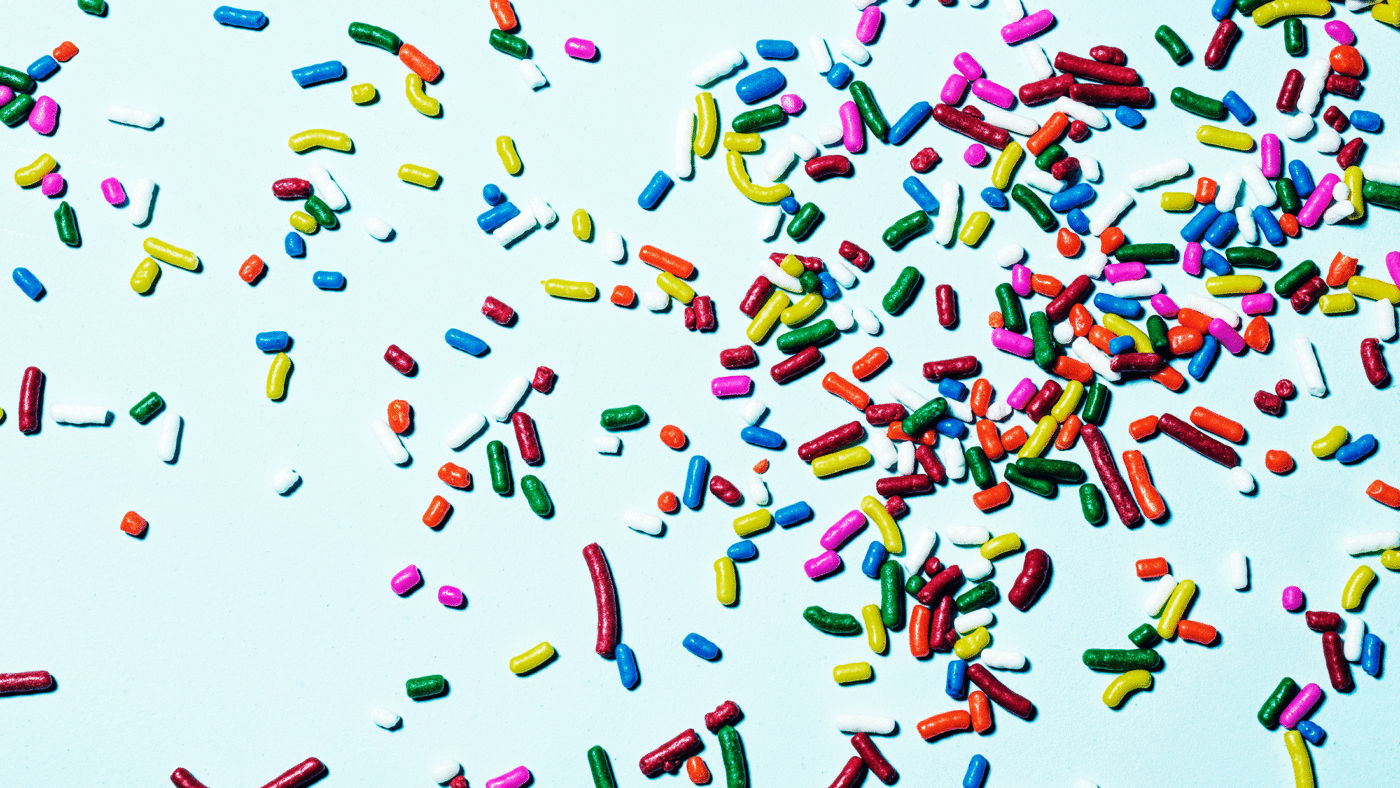Some criticise post-Brexit Britain for wanting to have its cake and eat it, but surely no one would begrudge us a few sprinkles? Except, as Leeds baker Rich Myers, owner of Get Baked, recently found out, if you use quality American sprinkles, Trading Standards might come knocking. Parasitic EU regulations designed to protect the self-serving the EU market have been baked in to British law.
As Myers explained in his Facebook post American sprinkles are superior.
‘I am only prepared to use them and no others. If I can’t use them, I won’t use any. I will be on sprinkle strike and won’t budge for no man.; He explained, there is no substitute “sprinkles you can get in this country are totally s***. They look w***, they bake w***.” Well, someone snitched, and Trading Standards showed up forbidding him from using the illegal sprinkles.
According to the Withdrawal Act, all EU rules on food additives, flavourings, enzymes, and extraction solvents were retained. This includes the ban on E 127, aka Red No. 3, aka erythrosine, aka the Boogie Man, aka what Trading Standards doesn’t like that is in the American sprinkles.
In Europe it is only approved to dye ‘cocktail and candied cherries, and Bigarreaux cherries’. While in America, it is approved for coloring food as long as it is free of impurities.
Both Europe and US regulators cite the same rat study that found when the dye makes up 4% their diet over a lifetime some male rats develop thyroid cancer. The rats were literally turning red.
On that basis the FDA was forced to ban it for some uses because of a law that automatically bans additives that can cause cancer in animals. The regulator made it clear the bans were due to the legal technicality and not a science based risk assessment.
However, in the EU a more protectionist 1994 law stipulates dyes should only be used to ‘reinforce colours already present in food’ and demands erythrosine only be used in cherries.
Does anyone question if there is more evidence on the safety of erythrosine considering that it’s been widely used in the US for thirty years? The US is the world’s largest exporter of sprinkles, the UK is forced to import the legal ones from Germany, Denmark, the Netherlands, and Ireland running a consistent trade deficit in cake decorating.
Since leaving the EU the UK has made tremendous progress unrolling its own tariff schedule, the UKGT, which immediately discarded 13,000 EU protectionist tariff lines, ensured a whopping 60% of trade would come in duty-free including imports used in production, and slashed many remaining tariffs on consumer products by as much as 5%.
As a result of the bilateral trade negotiations and the UK authored tariff schedule, independent Britain suffers fewer trade barriers between it and the rest of the world allowing it to score most improved in the 2021 Trade Barrier Index moving from 8th to 4th.
Yet non-tariff measures, such as the bureaucratic and unevidenced rules about food dyes, are still holding us back, with trade costs estimated to be more than double that of ordinary customs tariffs.
Going forward the UK can get rid of this rule unilaterally or through a trade agreement with the US or CPTPP. In either case, It will force the EU to activate the ‘rebalancing mechanism’ in the divorce agreement that triggers a dispute process when a new UK rule causes ‘material impact‘ on the EU. Such a dispute would expose the pettiness of the EU’s continued harassment of the UK’s sovereign trade policy, finally putting the icing on the cake of Britain’s independence.
Click here to subscribe to our daily briefing – the best pieces from CapX and across the web.
CapX depends on the generosity of its readers. If you value what we do, please consider making a donation.


